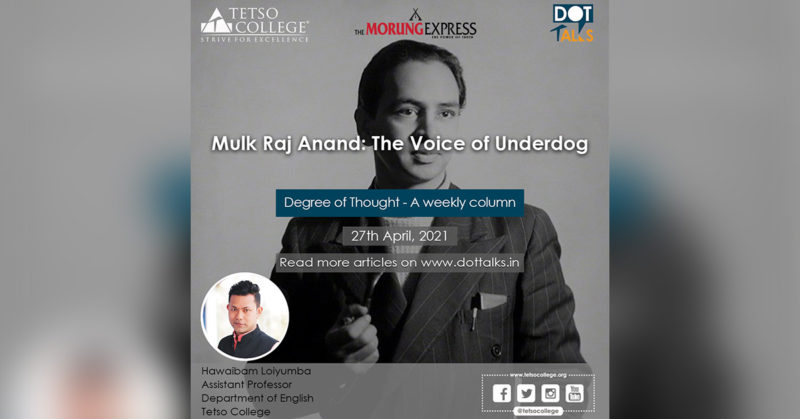
Much celebrated and respected as India’s Charles Dickens; Mulk Raj Anand’s works attempted to capture the social realities of British India in the language of the colonial master. He also incorporated Punjabi and Hindustani phrases in his English works. Along with contemporaries like Raja Rao, R.K. Narayan, Khushwant Singh and Ahmed Ali, Anand is considered one of the pioneers of Indian writing in English. He was awarded the Padma Bhushan by the Government of India for his contribution to Literature and Education. Mulk Raj Anand took his last breath in 2004 leaving the legacy of literature that has been influencing the generations of readers and scholars till this day.
Mulk Raj Anand: The Voice of Underdog
When we look back at Indian history; unfortunately, there is always a story of exploitation. The dominant class people operate the society for their own benefit. They never gave an opportunity to the underprivileged section of society. Their culture, customs and traditions were all based on the ideology of the powerful people. And they forcefully imposed all the norms of society to the lowest strata of the social order and made them believe in their ideology. It has been said that literature is the mirror of society but we have very few writers who were vocal about the life of the marginalized people during the pre and post independence era. Mulk Raj Anand is a gem of a writer who never stoops back from delineating the voice of the underdog. In most of his works, the protagonists are always the untouchables or the poverty stricken community. Whether it’s Bakha, a sweeper boy from Untouchable, Munoo from Coolie and Bikhu from The Road. Anand is one of those few novelists in the history of Indian English literature who do a full justice in narrating their sob stories. Even though he belongs to the higher caste Hindu family, he always mingles with the children of untouchables during his childhood days; from the very tender age he was exposed to such an environment where caste was never a barrier for him, who remained his close friends. So, he had a great empathy for the lowly and the downtrodden. Later, they became alive in his novels. Anand emerged as a champion of the poor people. In the novel, Untouchables, he instills a soul to the sweeper boy, Bakha, the central character with whom the plot of the story revolves around. The novel depicts the Indian society from the eye of a sweeper boy. Anand made this possible and he addresses the theme of caste system from a very rational point of view without any biases; as he lived through from the perspectives of both the sides. Through the story of Bakha, he exposes the curse of caste- ridden Hindu society and the hypocrisy of higher caste Hindu and the Brahmin. He demonstrates the pain and the sufferings of the untouchables with utmost authenticity and genuineness; a life full of unending pain and humiliations.
He truly became the voice of the underdog, which has enlightened the darkened minds of the people. It won’t be wrong to say that he started the trends of writing about the poor people. Under this rubric he has many novels to his credit. But with the kind of subject that he dwells on, it was not an easy journey for him. His first novel, Untouchable was rejected by more than fifty publishers. It was only when E.M. Forster wrote the foreword of the novel that he got it published and the rest is history.
Untouchable was published in the year 1935, but still Indian society is caged with the tradition of caste-system. We are bound with this age-old tradition. There are thousands of scholars who are working in his novel. Though Anand is no more alive, his writings are still relevant today. His novels are considered as the classic in the history of Indian English literature. Through his work he has occupied a pedestal in the field of art and literature. He earned an immense respect and love among the people; and left a huge void for his readers. We remembered him through his work and the subject he chose. Undoubtedly, MulK Raj Anand is the champion of the underprivileged section of society.
Degree of Thought is a weekly community column initiated by Tetso College in partnership with The Morung Express. Degree of Thought will delve into the social, cultural, political and educational issues around us. The views expressed here do not reflect the opinion of the institution. Tetso College is a NAAC Accredited UGC recognised Commerce and Arts College. The editors are Dr Hewasa Lorin, Dr. Aniruddha Babar, Rinsit B Sareo, Meren Lemtur and Kvulo Lorin.
For feedback or comments please email: dot@tetsocollege.org

